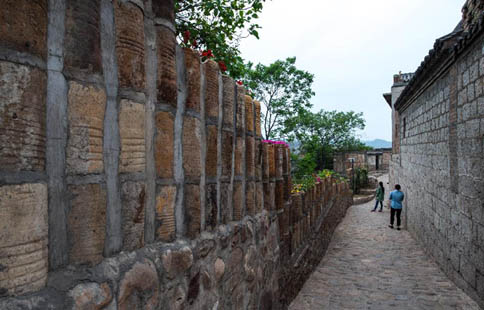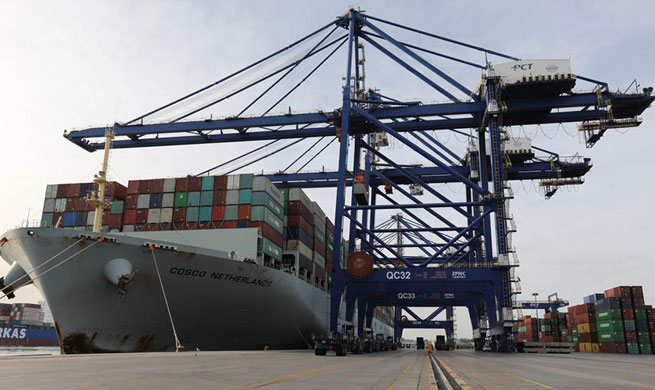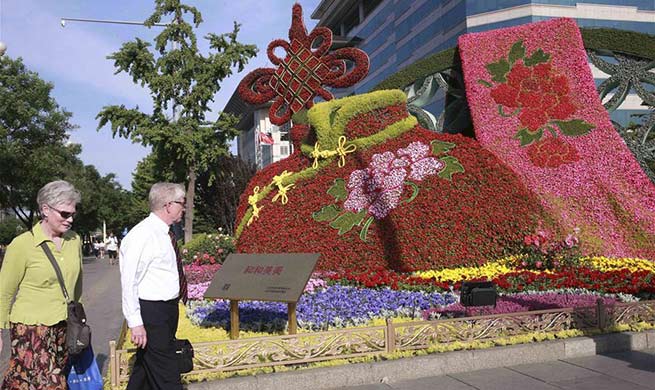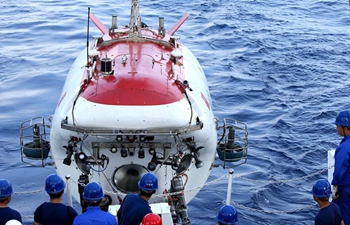by Geza Molnar
BUDAPEST, May 8 (Xinhua) -- China's Belt and Road Initiative "is really a great and brilliant project," Akos Kovacs, the CEO of Hungary's Ekol Logistics, told Xinhua in a recent interview.
"It can really help the trading activity and also the logistics industry. It is beneficial both for the customers and the service providers, and even for the authorities," he said.
Kovacs explained that "this new Silk Road, as it has been called, is a very good solution" to the slower ocean freight transportation between China and Hungary and other parts of Europe.
He said rail transportation is a really good alternative in this case and "is especially good for the automotive industry or for electronics or fashion, where the fast fluctuation of goods is very important and even two to three weeks can matter."
"Until now, the main transportation solution has been ocean freight. We all know it is a quite long, but cost-efficient solution. But these days, when trading is running fast and customers need fast solutions, there should be an alternative way," Kovacs said.
He underlined that the train in question had been a symbolic one because "it symbolizes the meeting of two high level projects -- the Chinese government's Belt and Road Initiative, and the intention of the Hungarian government to become one of the distribution centers of Chinese products in Europe."
Ekol Logistics, an integrated logistic service provider, provides supply chain solutions for its customers in 15 countries around the world, with the largest fleet in Europe. The company, also represented in Turkey and Iran, has been in business since 1990 and has more than 5,500 units of its own transport equipment.
The first freight train from Xi'an, the capital of northwest China's Shaanxi province and also the eastern end of the ancient trans-Asian trade route, arrived in Hungary's capital Budapest last month. The second cargo train is already on the road, and Ekol Logistics played a key role in the coordination.
"We were the coordinators in the European part of the train service, and we were the customs operator and the distributor of the goods," Kovacs said, adding he expected more trains to follow the first one.
"We have already agreed with one other train operator to start trains to Hungary and we have fixed other meetings in China with operators, because we would like to believe that we can provide them with solutions here in Europe," he said.
The solutions would not only be for new Chinese partners in Hungary, but also for Poland, Germany, Hungary, and Spain. Kovacs said he was quite confident that the new freight service could be a win-win situation for both the rail operators and Ekol, as well as for China and Europe.
For new Chinese customers, the Ekol CEO believes Hungary would be a good place for the delivery of goods to other parts of Europe.
"Hungary is not just geographically in a good location, but also has a friendly customs environment...Hungary is a perfect hub to deliver goods to Southeastern Europe and Southwestern Europe."
Despite its speed, the train freight systems need time before customers know about it, the logistics expert warned.
"We realize that in Europe, it is not that popular, because there is a lack of trust, there are no good models, there are no references, and it is the mission of Ekol to promote it and to advertise it."
"There is a huge interest, there is a big need, but somehow customers are still keeping their distance," he said.
Finally, Kovacs said that there were no major issues in the running of the first so-called "test train."


















